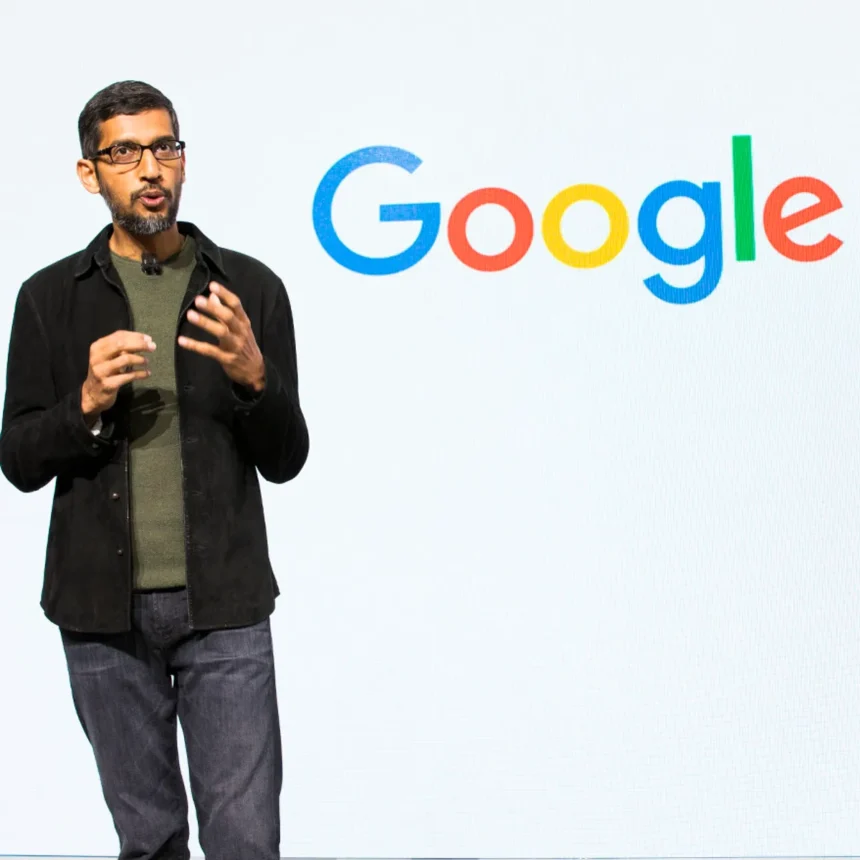Google’s AI is transforming search by personalizing results for each user. By utilizing extensive data insights, it creates individualized experiences by examining search history, location, and behavior. Users will therefore see material that is more relevant and more satisfying because it is in line with their interests and preferences. With the use of artificial intelligence (AI), Google hopes to change search from a one-size-fits-all method to one that is highly personalized and interesting for every user.

How might Google's AI innovations alter the competitive landscape of search engines?
Enhanced Search Precision and User Experience: Advanced Understanding of Queries: Google’s AI models like BERT (Bidirectional Encoder Representations from Transformers) and MUM (Multitask Unified Model) enable more precise understanding of complex queries and context. This leads to more relevant search results, setting a higher standard that other search engines must strive to meet.
User Experience Improvements: With AI, Google can provide faster, more intuitive search experiences, including predictive search suggestions and voice search capabilities. Competitors will need to innovate similarly to avoid losing users who prefer the seamless experience Google offers.
What changes can we expect in web content creation due to Google's AI integration?
SEO Evolution
Semantic SEO: Traditional keyword-focused SEO will become less effective. Instead, content creators will need to adopt semantic SEO practices, optimizing for topic relevance and natural language queries.
User Intent Optimization: Understanding and optimizing for user intent will become crucial. Content will need to be structured and written in a way that directly answers users’ queries and anticipates their follow-up questions.
How will Google's AI advancements impact ad targeting and digital advertising?
Increased Accuracy of Ad
Better User Profiling: AI can create comprehensive profiles by analyzing large volumes of user data. This allows for more accurate targeting based on the interests, habits, and demographics of users.
Predictive analytics: By using AI algorithms to forecast users’ future preferences and behaviors, advertisers can more successfully target potential clients through predictive targeting.
Contextual Advertising: AI’s increased ability to comprehend the context of webpages allows for more effective ad placement in pertinent contexts, which raises the likelihood that users will interact with the content.
What are the implications of Google's AI for voice and visual search technologies?
Smart Devices: Voice search powered by AI integrates seamlessly with smart home devices, enabling users to perform a wide range of tasks through voice commands, from setting reminders to controlling smart home devices.
Augmented Reality (AR): Visual search combined with AR can provide interactive and immersive experiences, such as overlaying information on physical objects when viewed through a smartphone camera.
Enhanced Product Discovery: For e-commerce, visual search can greatly improve product discovery. Uploading photographs to a product’s page allows users to search for it, increasing the conversion rate of visually-driven purchases.
Voice Commerce: speech search makes voice commerce possible by enabling speech commands to be used for transactions and purchases, which expedites the purchasing process.
How will Google's AI improvements address complex and ambiguous search queries?
BERT and MUM Models: Google’s BERT (Bidirectional Encoder Representations from Transformers) and MUM (Multitask Unified Model) are designed to understand the context and nuances of words in a query.
BERT, for instance, is more adept at comprehending the subtleties of natural language since it can deduce the meaning of unclear keywords by taking into account the words that surround them.
Contextual Understanding: These models analyze the entire sentence or paragraph rather than focusing on individual keywords, allowing them to grasp the context and provide more accurate results for complex queries.
Context Awareness: Google’s AI can discern the context in which a query is made, including understanding previous searches in a session, which helps in refining ambiguous queries. For example, if a user first searches for “Apple” and then for “benefits,” Google can infer that the user is likely looking for the benefits of consuming apples rather than information about the tech company.
Semantic Matching: AI improvements enable the search engine to understand the meaning behind queries and match them with semantically relevant content, even if the exact keywords aren’t present in the results.
World is changing so the technology
The latest Google’s AI advancements, especially in the form of sophisticated natural language processing (NLP) models like BERT and MUM, are expected to greatly increase the search engine’s capacity to handle intricate and confusing inquiries. Google is able to provide more accurate, relevant, and personalized search results by using contextual data, semantic interpretation, entity recognition, and continuous user interaction learning. These developments guarantee that even the most complex and subtle questions are accurately understood and fully addressed.














